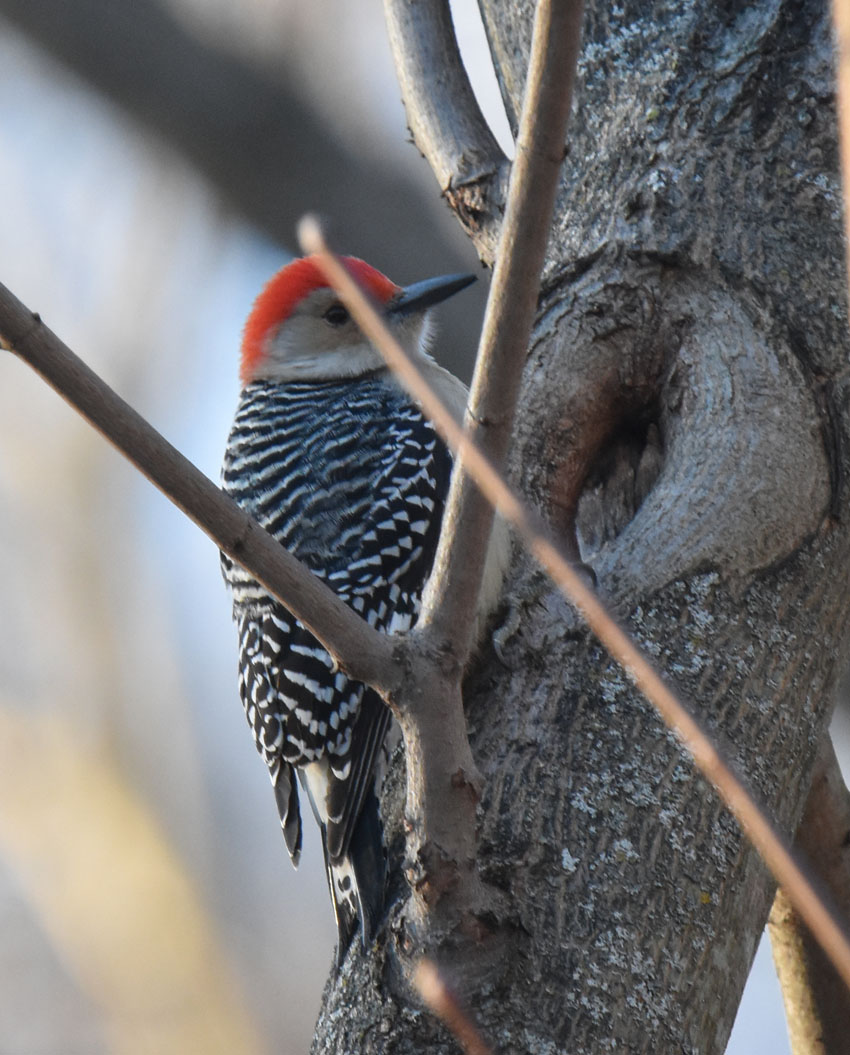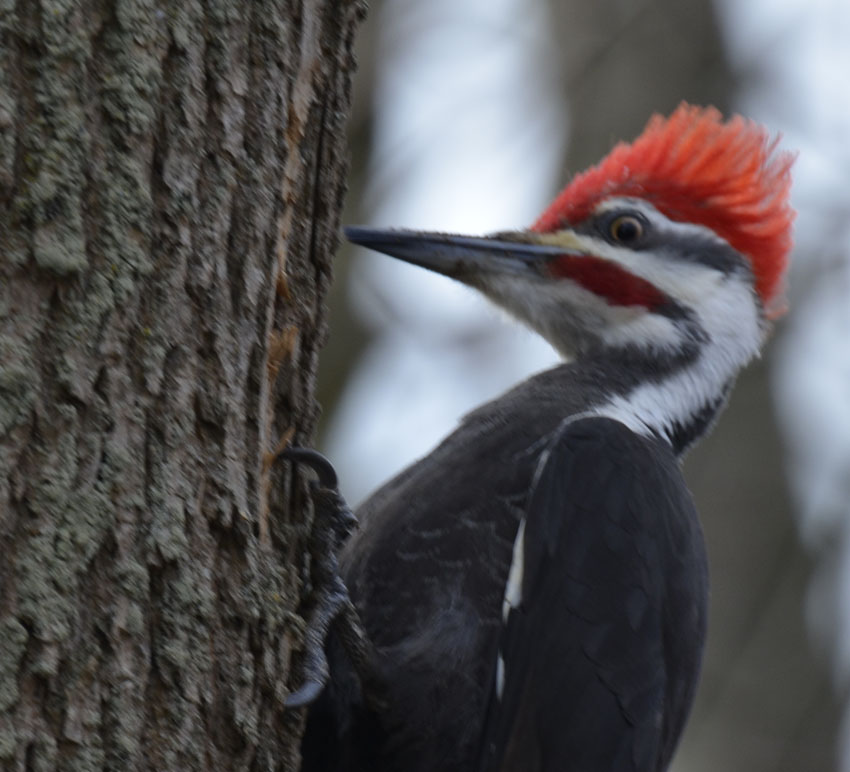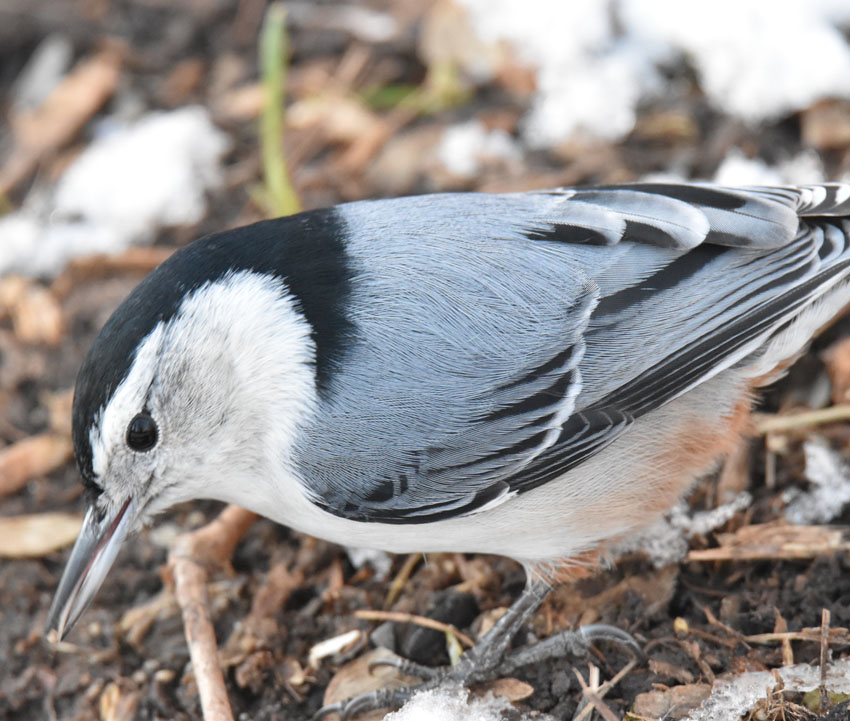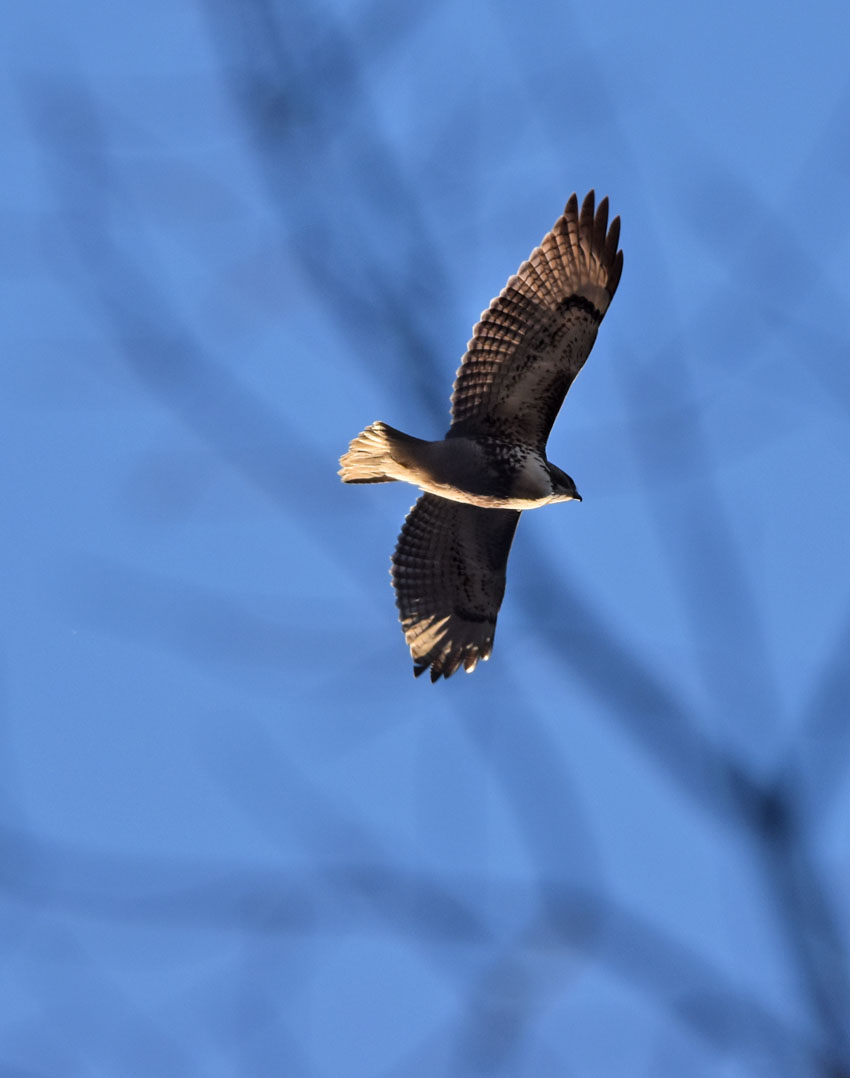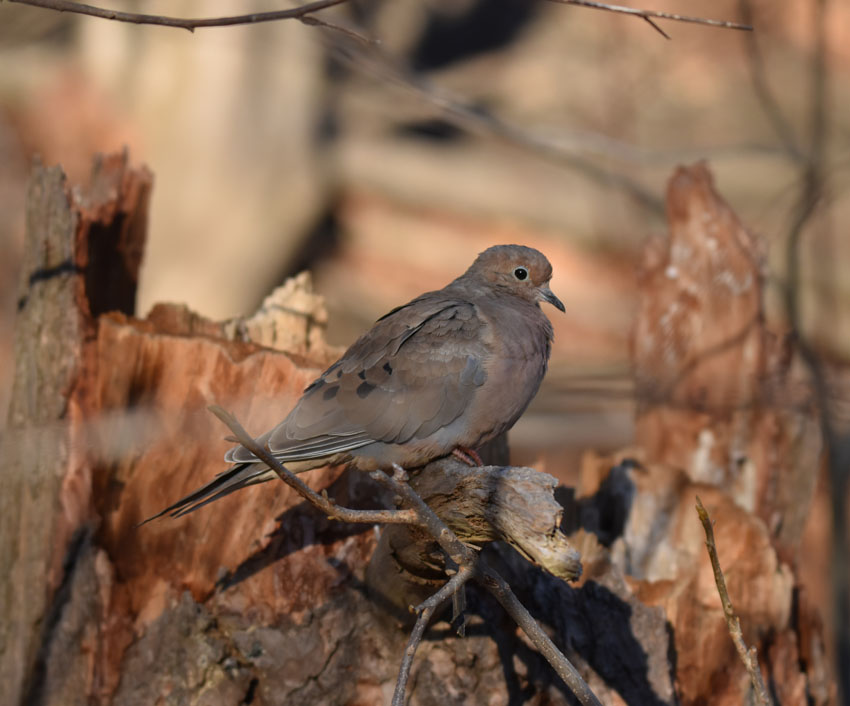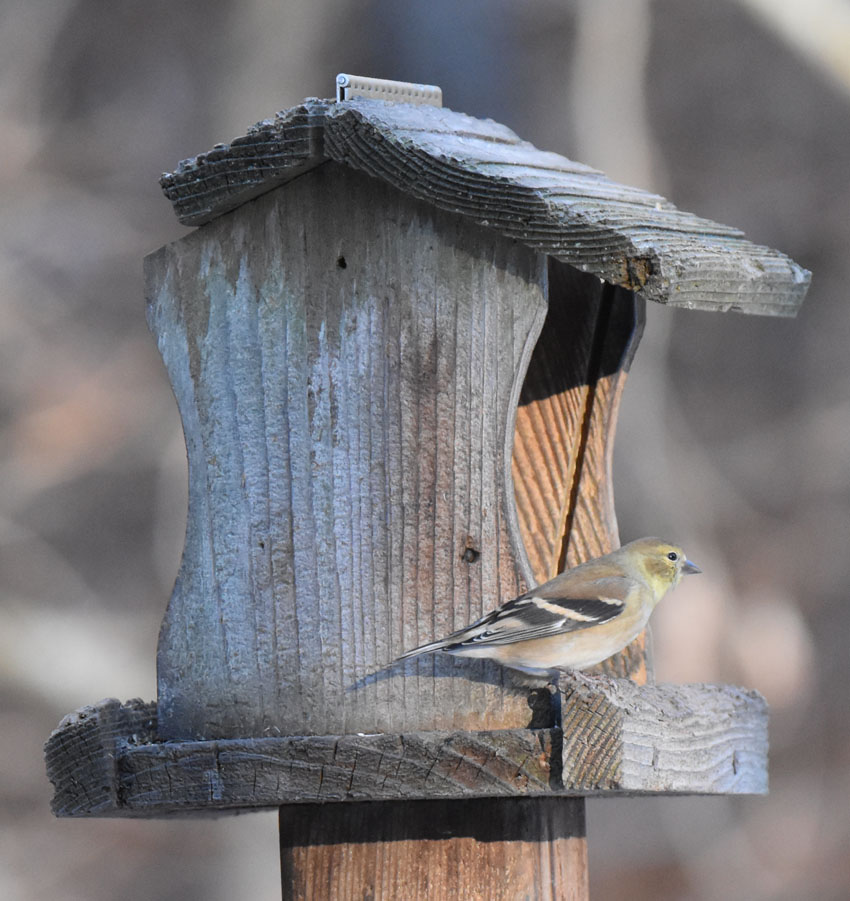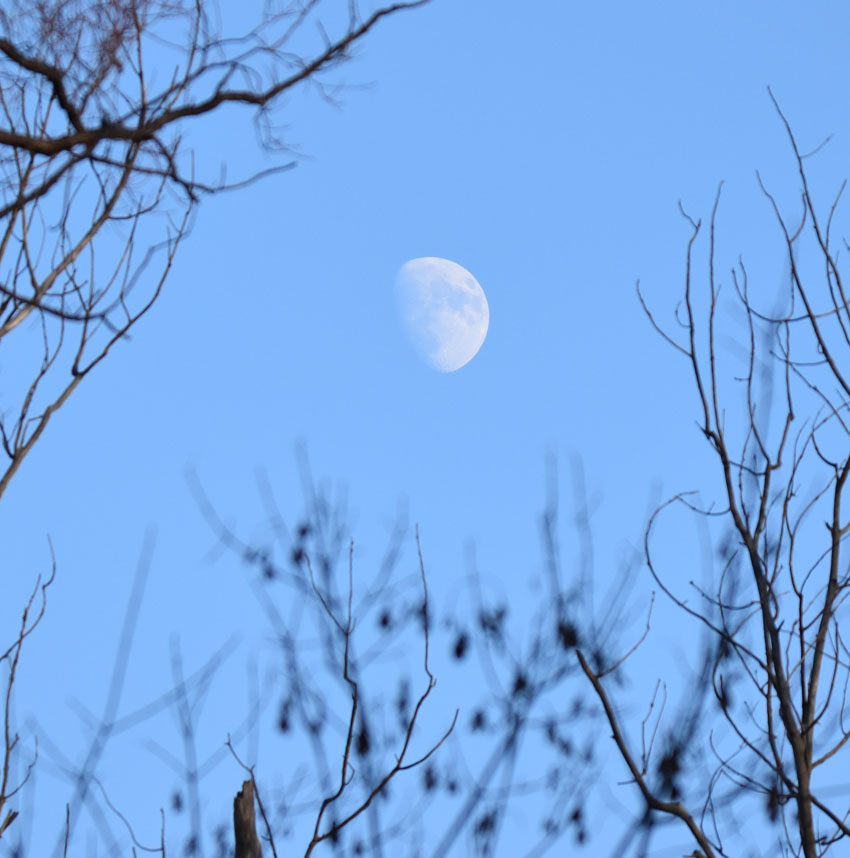December is here and though we only had a dusting of snow in the first few days, it was overcast and cold enough to make me postpone going out for many walks. When the sun burst out briefly late one afternoon, I took advantage and went for a walk along the Feeder Trail at the Riverwood Conservancy. I knew it’s a good place to easily see some of the “regular” winter birds of Mississauga.
Sparrows Seek Seeds in the Snow
A variety of sparrows are commonly seen along the Red Deer trail edges. They hunt through the wild tangles of Cow Parsnip, Goldenrod, Virgin’s Bower clematis, Riverbank Grape and Thicket Creeper. If you’re patient, they also come out under the feeders to eat some of the seeds that have spilled on the ground.
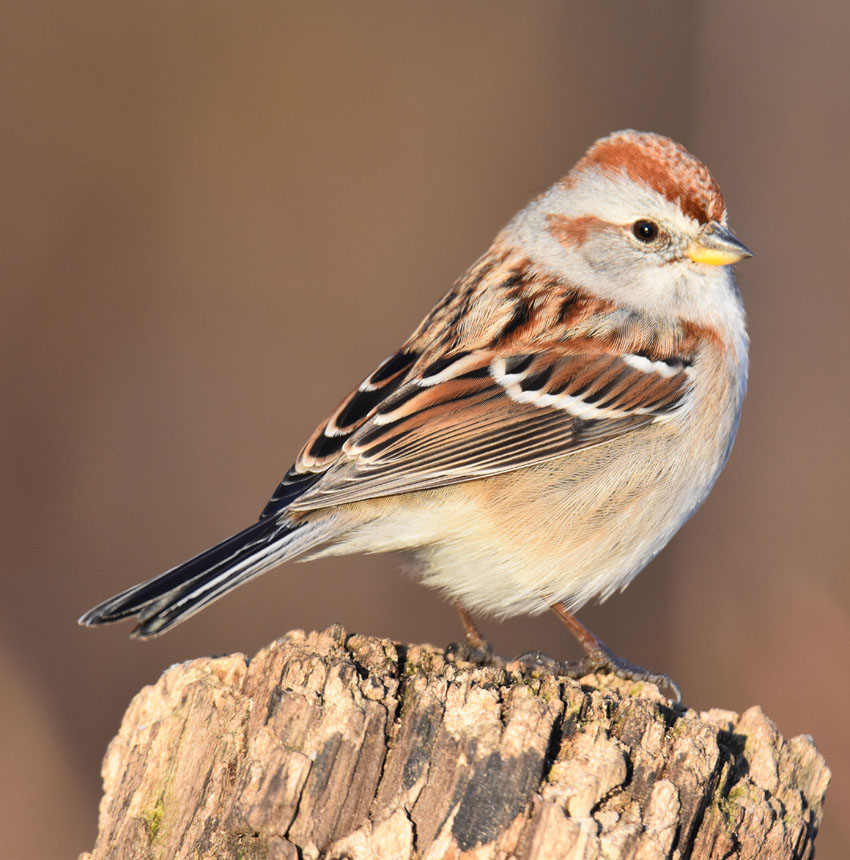
This American Tree Sparrow spent most of its time, as usual, on the ground not in the trees.
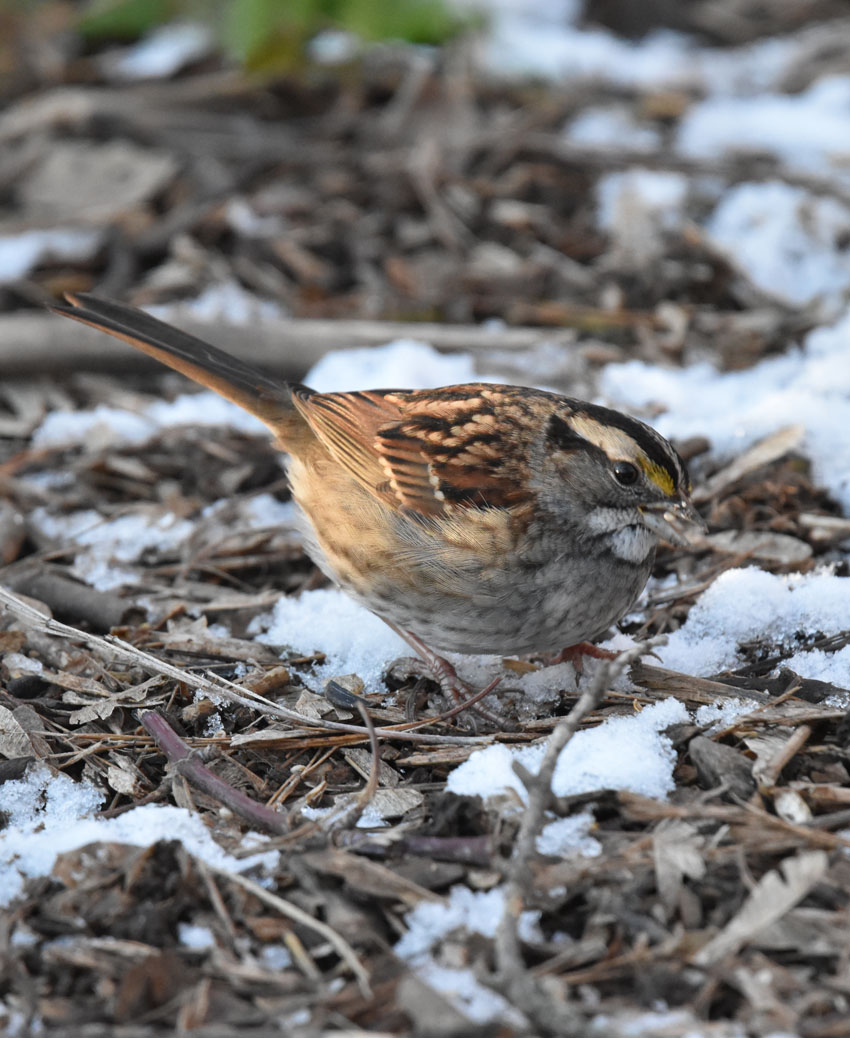
Three, or more, White-throated Sparrows popped out briefly. Before they put in an appearance, I could hear one making an off-key half-hearted attempt at its summer song.
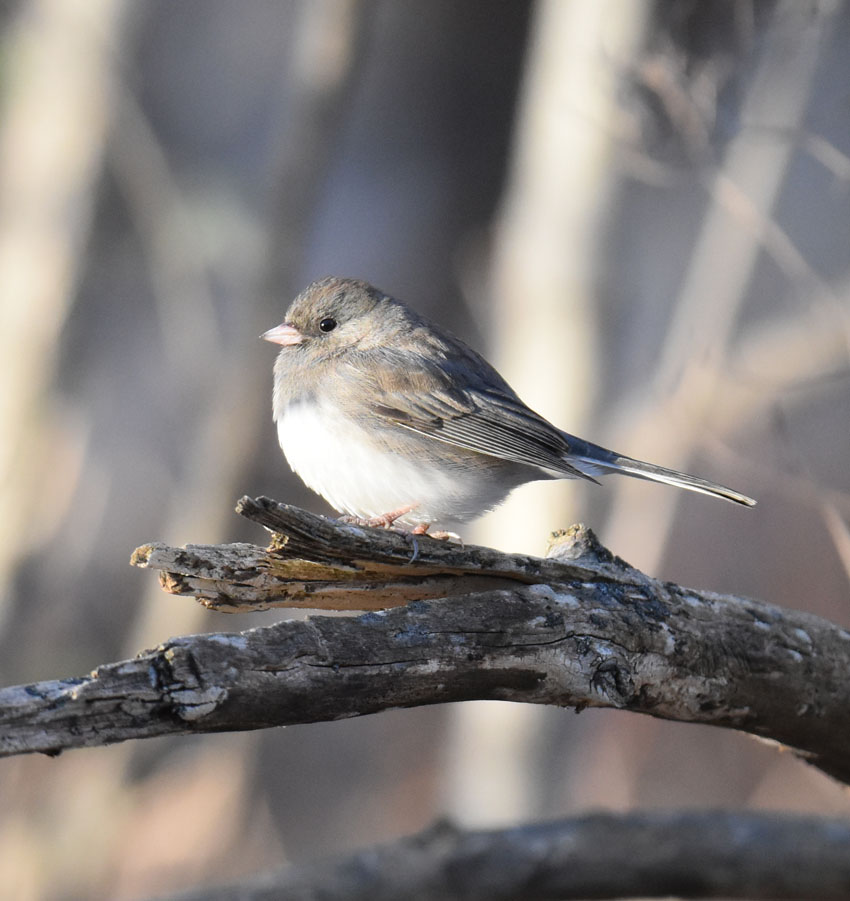
Dark-eyed Juncos are back in large numbers. They are shy of the dogs, though, and will quickly retreat back from the path until it’s just people.
This Is NOT a Red-Headed Woodpecker
There is an older sign on the property that shows many of the Woodpeckers commonly found at the Riverwood Conservancy. Unfortunately, it also has a photo of a Red-headed Woodpecker. While it would be great if they were common in the park, they are very uncommon indeed. Two of the other woodpeckers are the ones most commonly mis-identified as Red-headeds.
This is a Red-bellied Woodpecker. The males have a red racing stripe from just behind their bill up and over their head and down to their back. The females have a smaller red marking.
While I didn’t see or hear one on this recent ramble, I have also often seen the Pileated Woodpeckers that nest at Riverwood. This is a photo from another walk, to show the male’s large red crest. Females also have it but again it isn’t as extensive as the males.
Downy and Hairy Woodpeckers are very common along the feeder trail at Riverwood as well. There is one Downy that will occasionally take a seed from a person’s hand–but it’s not a common event.
Nuthatches Visit Feeders and Sometimes Hands
There are several pairs of White-breasted Nuthatches along the trail. There’s usually one pair of Red-breasted Nuthatches as well which is more commonly seen near the feeder at the top of the hill that is bordered by the planted Spruce Trees.
This White-breasted Nuthatch male is one of a pair that will both feed from a person’s hand if they are hungry enough, if the person is calm enough, and preferably if the person has shelled peanuts on offer. The female Nuthatch has a much greyer cap.
While Nuthatches usually hunt around on tree trunks, they will forage on the ground. This one was picking up spilled seeds but I have seen them at the Rattray working along the ground where there are no human-provided seeds anywhere in the area.
Silence and Stillness As a Hawk Soars
When the Chickadees fall silent and the small birds seem to vanish, I usually look up to see if the answer is flying by. In this case, one of the resident Red-tailed Hawks was cruising around. It didn’t stay long so the squirrels and birds soon went back to their own business.
A Multitude of Mourning Doves
Although you see the occasional Mourning Dove in the park in the summer, in the winter, they seem to arrive by the busload. The whistle of their wings as they flap up and away as you walk along the path is very noticeable.
Although they are very common, these birds can blend in surprisingly well with the leaves and dead wood of the forest floor.
The Common Winter Finch of Mississauga
The most common Finch I see in Mississauga in the winter is actually an over-wintering summer resident: the American Goldfinch. They certainly don’t show up as vividly as they do in the summer, though.
Short Days, Long Nights
All too soon, the sun was starting to set and it was time to hustle around the rest of the loop. The Chickadees were not best pleased when I left them, but I did leave behind some seeds as a compensation.
I’ll have to get out again soon: even the winter “regulars” are well worth spending some time with!
Related Reading
- What Sparrow Has a Two-Colour Bill?
- What Grey and White Sparrows Have Invaded My Back Yard?
- Northern Mockingbirds in Southern Ontario
Join In
What are the regular birds in your winter neighbourhood? Please share your sightings with a comment.

